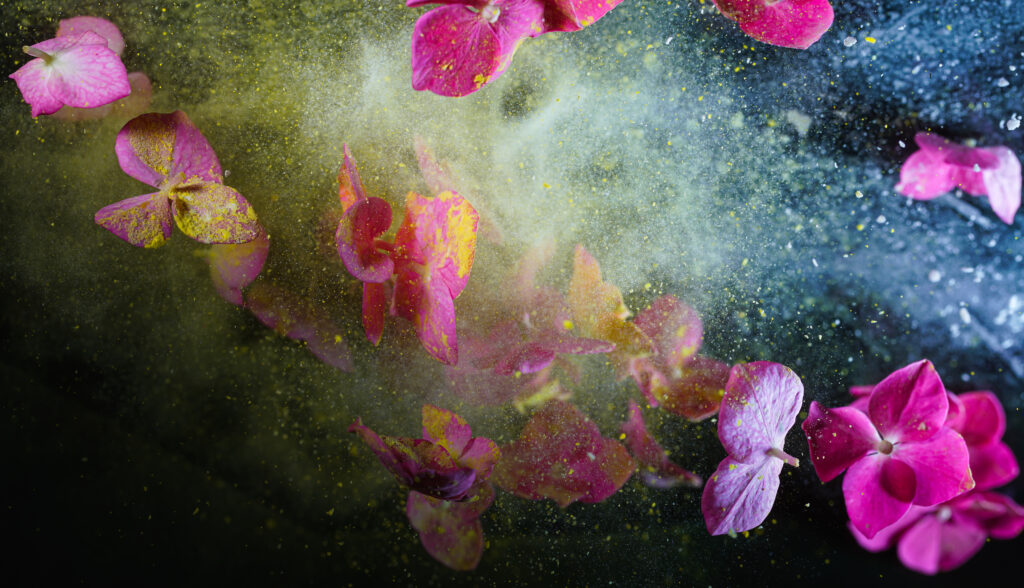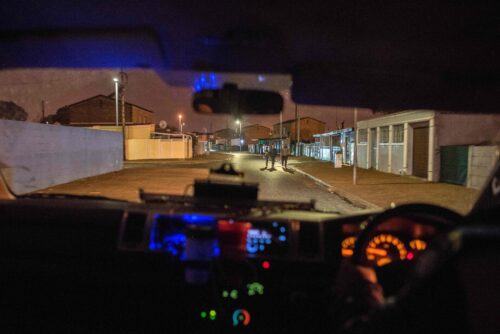To Wear the Wind

“To Wear the Wind” begins in song, reflecting an animated world where young people are taught to learn and mimic the language of the Earth—of birds, insects, mammals, and others—emphasizing a shared cosmos.
Centered in Lotha Naga tribal society, one of the 20 tribal groups inhabiting Nagaland in today’s India, my poem illustrates how traditional views of ecology as manifested in Oral Traditions intertwine the natural and human worlds. As an example, the Lotha folk religion used the natural world to create gods, godlings, and deities who dictate the workings of the human world and ensure balance between the entities.
Inspired by their surroundings, Lotha people’s folklore—proverbs, songs, singing styles, and cultural beliefs and practices—became a repertoire of symbols for the community’s imagination. Nature and cosmology were mediated through ritual and custom, and subsequently, were internalized in one another.
My poem dwells on culture change that took place after the arrival of the colonizing missions beginning in the 19th century that redefined how beliefs were practiced. In contrast to traditional Lotha epistemology, this new worldview heralded a change in the way human and nonhuman relations were understood and sustained. It posited humans at the top of the natural order, as caretakers and, hence, not existing on the same level as the other entities.
This engendered a very egocentric view of the lived human experience. Instead of humans participating as part of the animal and plant universes to mutually enable and validate one another, people became much more isolated and detached from the natural world.
Above all, traditional, pre-colonial Lotha belief was not only a cerebral sieve through which ecological thought and worldviews were harnessed, but it was also a way of establishing the connection between nature and culture. In my poem, I use this lens to dismantle the established polarity of “nature” versus “culture.”
To Wear the Wind
We taught our boys and girls to sing the
deep-throated cackle of the cicada
and gave it a name,
the night Earth was, after all, theirs.
The women went to the hearth
to light up a fire, and there,
stirring the earth, they paid homage
to the summer ferns that wear the
wind in their tentacles.
The men—some bronzed with age—
sat across from one another in the chumpo
[1]
[1]
Chumpo (popularly known as morung) is a Lotha term for a traditional dormitory for men where they deliberated on affairs and passed on skills and knowledge on the art of war and codes of warriorship.
talking about the White man
whose mannerisms they felt
were shaped by a wilderness that comes
from a prolonged season of leprous winter.
He didn’t touch the earth as he walked.
Instead he covered his feet as though the earth
was a thing untouchable,
his grins were exact, and so were his eyes.
He spoke of healing, and other types of Gods—
all the while paying obeisance to man, and man, and man.
Some recalcitrant types had already gone
and started breathing in the new air made up of
plump sounds that, when uttered,
instantly vaporized the songs of our fathers
until only an empty echo remained in its place.
“Surely, Jupvuo will show them their way back home,”
[2]
[2]
Jupvuo is the Lotha deity of the water.
someone said. “Sikhyingo will not be happy. Once the Nungkumvu
[3]
[3]
Sikhyingo is personified fate. According to Lotha Oral Tradition, it is believed that if Sikhyingo’s face is turned away from a person, then they will have bad luck unless he is placated, and his face is turned in favor toward them. Nungkumvu are short goblin-like creatures believed to inhabit the netherworld. They often took people and children captive for days.
get their children, they will understand.
After all, the Earth was theirs for the taking.”
But Jupvuo never retaliated, neither did Sikhyingo, while the
Nungkumvu seemed to have lost the eye for humans.
As the years passed, even the duels among the majestic trees
of our forests stopped.
With renewed hoarseness, the voice of humans replaced the
idyllic tunes of the songbirds, while down by the riverbed,
The fish swam lower and lower, shaken forever by the blast of dynamites.
Humans now owned the Earth; it was theirs for all the taking.
But on a night like this one when the wind flings itself from the
rooftops of churches and myth swaddles the air with shadows,
it is not you and I who tug at the pulse of the hydrangea and
pin the stars among the tulips.

























